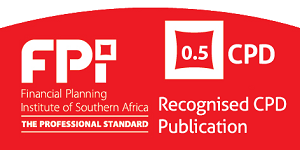2019 South African Business Ethics Survey (SABES) key highlights
Publish date: 07 June 2019
Issue Number: 12
Diary: CompliNEWS Ethics
Category: Ethics
The Ethics institute (TEI) has released its fifth report stemming from a survey of organisational ethical culture of South African listed and large organisations, as experienced by internal stakeholders.
In 2002, the first Business Ethics Survey South Africa was published, followed in 2009 by the South African Corporate Ethics Indicator and the South African Business Ethics Survey (SABES) in 2013 and 2016.
This survey measured people's perceptions in the following dimensions:
- overall ethical culture
- ethics awareness
- tendencies to report misconduct in organisations
- ethics talk
- senior and middle-management commitment to ethics
- ethics accountability and responsibility
- ethical treatment of employees
The Ethical Culture Risk Indicator (ECRI) was used to measure ethical culture in participating organisations. ECRI has been validated in both the public and private sectors, with data gathered from 22 private- and public-sector organisations over several years. The instrument uses a hybrid model of ethical culture and climate, and is theoretically based on ethical culture and climate dimensions proposed by numerous theorists.
The ECRI presents overall ethical culture by means of an Ethical Culture Total Score. The Ethical Culture Total Score ranges from zero to 100, with higher scores indicating greater agreement by respondents that the organisation has a mature ethical culture, as based on numerous predictive dimensions.
The score indicates that, on average, listed and large private organisations operating in South Africa fall within a moderate ethical culture risk category, with some aspects of an ethical culture present, and others underdeveloped. Additionally, these findings indicate an overall 'developing', but not 'mature', ethical culture. These findings are encouraging insofar as they indicate that organisations are prioritising the building of an ethical culture to some extent, but also demonstrate that more can be done to improve the ethical culture of large and listed organisations in South Africa. Evidently, not all governing bodies are heeding principle two of the Fourth King Report on Corporate Governance for South Africa (IoDSA, 2016), which states that 'the governing body should govern the ethics of the organisation in a way that supports the establishment of an ethical culture'.





